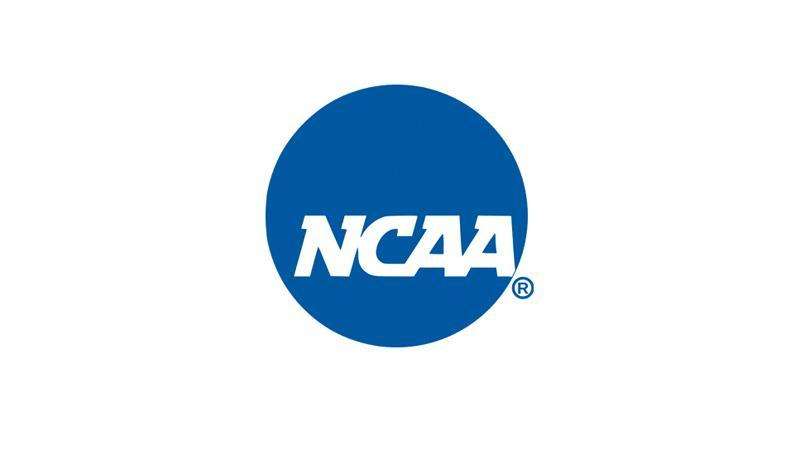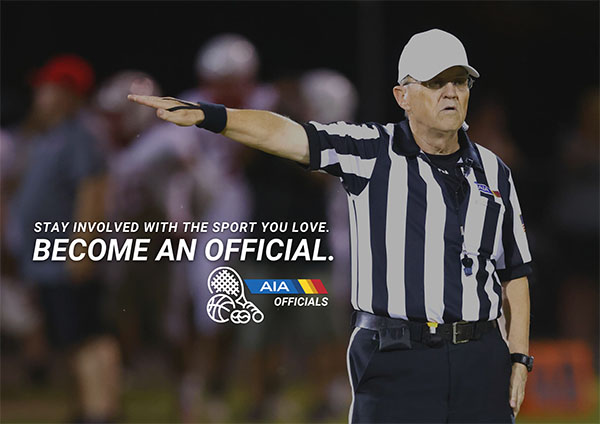Fair Pay to Play Act Versus NCAA: From a high school volleyball player's perspective
November 3, 2019 by Alexis Cortez, Arizona State University

Alexis Cortez is a student journalist at the Walter Cronkite School at Arizona State University assigned to cover the Perry volleyball team.
On Sept. 30, 2019, California Governor Gavin Newsome signed the Fair Pay to Play Act, which would allow college athletes in California to profit off their image, name and likeness. This law challenges the NCAA rules, which formerly forbade athletes from receiving compensation for their names, images and likeness used.
However, the NCAA’s governing board voted unanimously on Oct. 29, 2019 to permit students to profit off their image, name and likeness within the coming years. The NCAA says they are embracing the change, but details of the process are yet to be disclosed.
Dan Serrano, principal of Perry High School, says the percentage of Perry athletes who commit to California schools is very low. “It’s probably roughly less than 1%,” he said. Serrano also says because of Title IX, everyone would have the exact same opportunity to be able to profit, but it may be harder for smaller sports to gain compensation. Title IX states that no person in the United States shall be excluded or discriminated based on sex. There have been a few Perry High School athletes who have committed to California schools in numerous sports, according to Serrano.
On the Perry girls volleyball team, three girls are currently committed to California schools. Jenna Heller, a junior, committed to University of the Pacific; Ella Rud, a junior as well, committed to Fresno State University; and Sian Richardson, a senior, committed to California State University, East Bay. Heller has 977 assists and counting, and Richardson has a career number of kills with 518 and 687 career digs so far. Rud has 383 career kills and 323 digs so far and the number is expected to rise for her senior season next year.
With the NCAA’s unanimous decision, this may benefit volleyball players by giving girls the opportunity to profit off their likeness and their name, especially if they are one of the top performers at their respective universities.
Jenna Heller thinks that this law would benefit volleyball players. “This affects volleyball players because unlike football, volleyball players don’t get millions of dollars to play professionally,” Heller said. “This would be a great chance for volleyball players to earn money doing the sport they love.”
Perry High School produces some of the best athletes and teams in the state year after year, and its volleyball program is no exception. At times in the 2019 season so far, the team is ranked No. 1 in the state and 33rd nationally. So far on the season, the girls are averaging 13.4 kills per set and 18.2 digs per set, putting them above the national average in both categories. All this earned the team a No. 1 seed in the playoffs.
According to a 2016 article by Cork Gaines from Business Insider, women’s basketball brings in the most revenue among female sports. According to Gaines, the three-year average women’s basketball revenue for Texas A&M alone was $1.5 million. And according to an updated 2017 Business Insider article by Gaines and Mike Nudelman, women’s volleyball brings in an average of $803,713 a year.
However, there are different ways for these sports to bring in money for themselves besides endorsement deals. According to Dan Murphy of ESPN, “Athletes could also make money by monetizing social media feeds or selling T-shirts online.” This gives opportunities for college volleyball players to market themselves via social media or sell memorabilia to fans of the game and of the player.
While there may be benefits, some student athletes view it differently. Makayla Long is a junior on the Perry girls’ volleyball team who is currently still deciding on a college but has several major offers so far. Long has 192 career kills and 76 blocks and counting. Long says she would not want compensation if a school were to use her likeness or image. “I would not want to be treated any differently if I were to be used for popularity,” Long said. “I know that my teammates have worked just as hard as I have, and we should be playing for each other.”
While the law wouldn’t go into motion quite soon and the NCAA have time to respond with ideas after the decision, it does raise questions about college athletes and the NCAA in the future. All in all, it also depends on one’s personal choice and one is entitled to their own opinion about the controversial subject that has been questioned for years. It is a subject whose fate will be decided in time to come.


